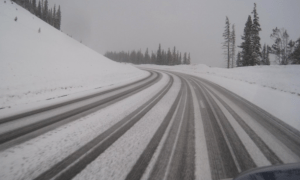The fall months are an excellent time to make sure your vehicle is ready for winter, especially in Fort Collins, Colorado. As the temperatures begin to drop, they will have an effect on different vehicle systems, some systems more than others. The following fall car care tips will help make sure your vehicle can handle the winter months.
- Make sure all the fluids are in good condition. Engine oil, antifreeze, brake fluid, steering fluid and transmission fluid all play a vital role in keeping your vehicle running optimally. They are designed to lubricate and protect engine parts from corrosion. In time, the fluids break down and they don’t protect as well as they should. Before going into winter, have the engine oil changed. You may also want to have us check the antifreeze to make sure it’s in good condition. Finally, it’s a good idea to check the brake, power steering and transmission fluid regularly. If you find that any of these are low in fluid or if the transmission fluid is black or smells burnt, you should have your vehicle checked out. Low fluid in these vehicle systems means there’s a leak or problem somewhere that needs to get fixed.
- Take care of the windshield. The worst time to find out you need new wiper blades is in the middle of a winter storm. Have them changed now. If there are any small cracks or dings in the windshield, have it repaired. Changes in temperature can cause a minor ding or crack to become a major crack. Lastly, don’t forget to top off the windshield wiper fluid. You may also want to keep some in your vehicle for those times it runs out (usually at the most inopportune time, we might add).
- How old is your vehicle’s battery? Cold, winter mornings can kill an older battery. The average vehicle battery lasts around 4 years. If yours is approaching that age, we can test it for you to make sure it has a good charge. If it’s 4 years or older, have it replaced now.
- Regularly check tire air pressure and inspect your tires for problems. Tires that are worn, bald, badly aligned or unbalanced are a serious safety risk. You can check tire pressure once a month. Also make sure you have the tires rotated and the wheels aligned on a regular schedule.
- Check belts and hoses. These parts are going through a lot of wear and tear each time you drive your vehicle. As they age and the more they are exposed to the elements, these rubber parts will weaken. They may begin to crack, split or bulge. Inspect the belts and hoses on a regular basis and replace them before they fail.
- Make sure the brakes are in good shape. Replace brake pads when they should be replaced. For more on brakes, please visit our blog post that lists the commons signs you need brake repair.
- Make sure you can see and be seen. Replace any headlamps and bulbs that aren’t working.
The simplest way to make sure your vehicle is ready for our harsh winters, is to bring it on by and have us take care of all these items for you. Give us a call or stop by today.

